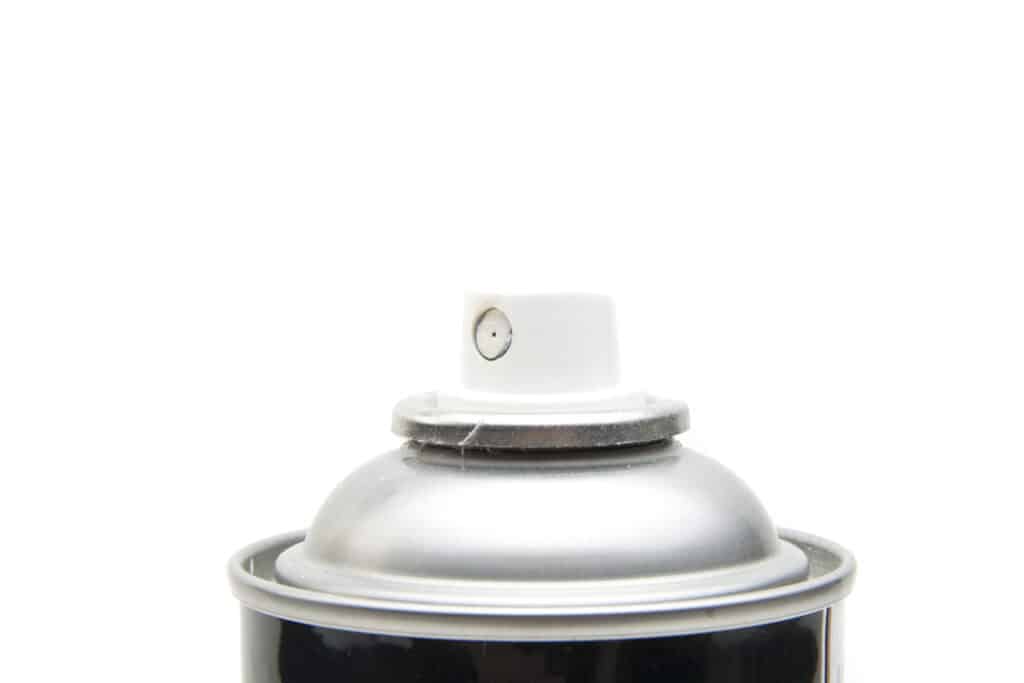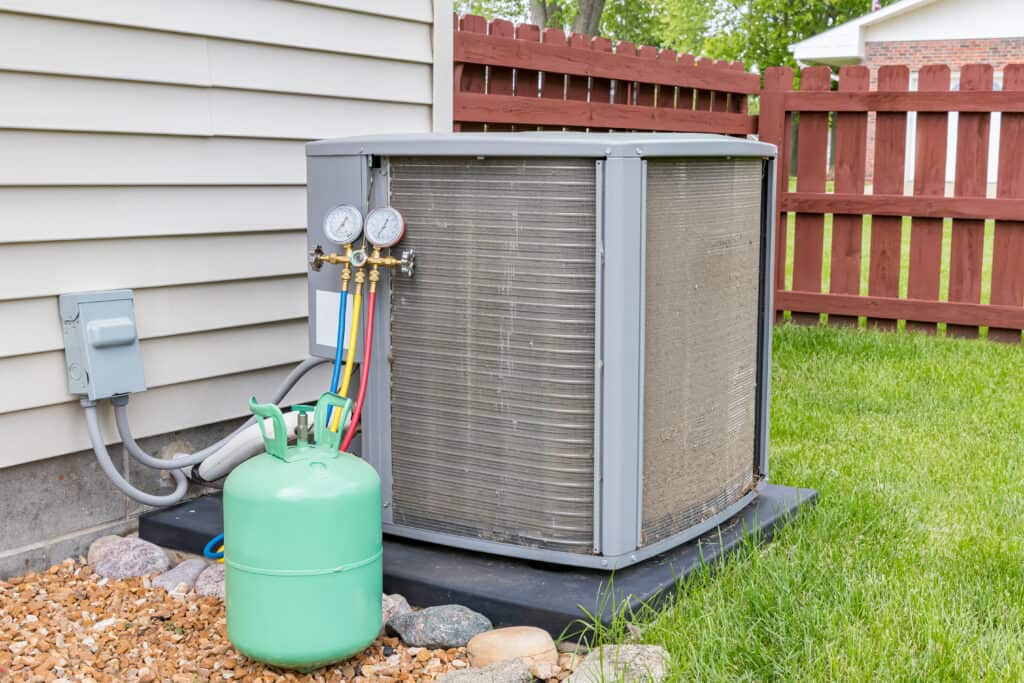What is Refrigerant and Why is it in Air Conditioners?
The key to the cool air flowing from your air conditioner is the refrigerant. It, like many HVAC products, has evolved over time. Here we’ll talk about what AC refrigerant is, how it works, the different types, and signs you might have a refrigerant leak.
What is Refrigerant?
Refrigerant is the chemical inside an air conditioner that provides cool air after undergoing several changes in state. It’s found in any appliance that cools, such as freezers and refrigerators. Though refrigerants all do the same thing, only specific kinds are used in air conditioners.
What are the different types of refrigerants?
Through the years, air conditioners have used different types of refrigerants to cool homes and businesses. The following are four common ones used in the past and in current systems.
Chlorofluorocarbons (CFCs)
Also called R-12, CFCs were the first type of refrigerant used in air conditioners. It was used for several decades before evidence and studies showed CFCs contribute to the greenhouse gas effect in the Earth’s atmosphere, along with the ozone layer breakdown. CFCs were phased out of use before being banned in 1994.
 R22 Refrigerant
R22 Refrigerant
Like CFCs, R-22 or Freon™ was the refrigerant of choice for air conditioners for many years. Unfortunately, it too was found to be harmful to the atmosphere and environment. R-22 refrigerant was banned under the 2010 United States Clean Air Act which meant new air conditioners would need to use a different refrigerant. Systems built and installed before 2010 usually used R-22 and were grandfathered in for recharging until 2020, when it was entirely phased out of use.
R410A Refrigerant
The successor to Freon™, R-410A is also known as Puron and lacks chlorine in its chemical makeup. Without chlorine, Puron has less of an environmental impact but keeps the cooling qualities of R-22. Air conditioners using this type of refrigerant are usually more efficient in energy consumption, provide improved air quality, and are more reliable.
R-32 Refrigerant
One of the newest types of refrigerants, R-32 is even more efficient than Puron; air conditioners using R-32 used 20% less refrigerant than Puron systems. This refrigerant is easier to recycle, has a lower environmental impact than any of its predecessors, and R-32 air conditioners are less expensive to operate.
How Can I Find Out What Kind of Refrigerant My AC Uses?
Most air conditioners have a sticker or plate on the compressor or evaporator stating the refrigerant type. If the sticker or plate isn’t legible, your HVAC technician can tell you the type.
How Does Refrigerant Work?
We’ve already talked about how refrigerants absorb heat and humidity. But, it’s through the refrigerant’s ability to change from liquid to gas then back to liquid where refrigerant works.
The gas moves toward the indoor unit and begins to evaporate when it comes into contact with warm air. While evaporation creates cool air, the refrigerant returns to liquid form.
Signs Your AC Needs Refrigerant Work
Although the refrigerant is contained within the air conditioner, if it begins to leak, you may experience these common signs.
AC is on, but no cool air is coming out
Air coming out of the vents is good, since it means the system is still running. But no cool air is a problem. As refrigerant slowly leaks from the system, the lower level means it won’t fully absorb heat and humidity pulled from your home.

Coils are Frozen
Without the proper amount of refrigerant to absorb heat and humidity in the air, the evaporator coils can freeze over. Frozen coils can cause a full system shutdown to prevent the AC system from overworking and damaging other internal components.
You hear a hissing sound coming from the AC
Though this can be hard to hear, leaking refrigerant often makes a hissing sound as it escapes the coil or line. The sound is a byproduct of the built-up pressure inside the coils or refrigerant line.
Surging Electric Bills
While running an air conditioner can increase your monthly electric bill, a sudden surge often signals a larger issue. A system operating with low refrigerant has to work harder than usual as it tries to produce the set air temperature. The harder it works, the more electricity it’ll consume.
You haven’t had a tune-up in a while
The longer an air conditioner goes without a service tune-up, the more likely a refrigerant leak continues until you have a major problem. Scheduling a tune-up lets an HVAC technician thoroughly inspect the system, make repairs as needed, and properly recharge the refrigerant. It’s the best way to ensure your air conditioner runs efficiently and safely during the spring and summer.
 The refrigerant in your air conditioner is an amazing compound and provides cool comfort for years when the entire system is maintained. If your system could use a tune-up, contact Bell Brothers today to schedule an appointment.
The refrigerant in your air conditioner is an amazing compound and provides cool comfort for years when the entire system is maintained. If your system could use a tune-up, contact Bell Brothers today to schedule an appointment.


